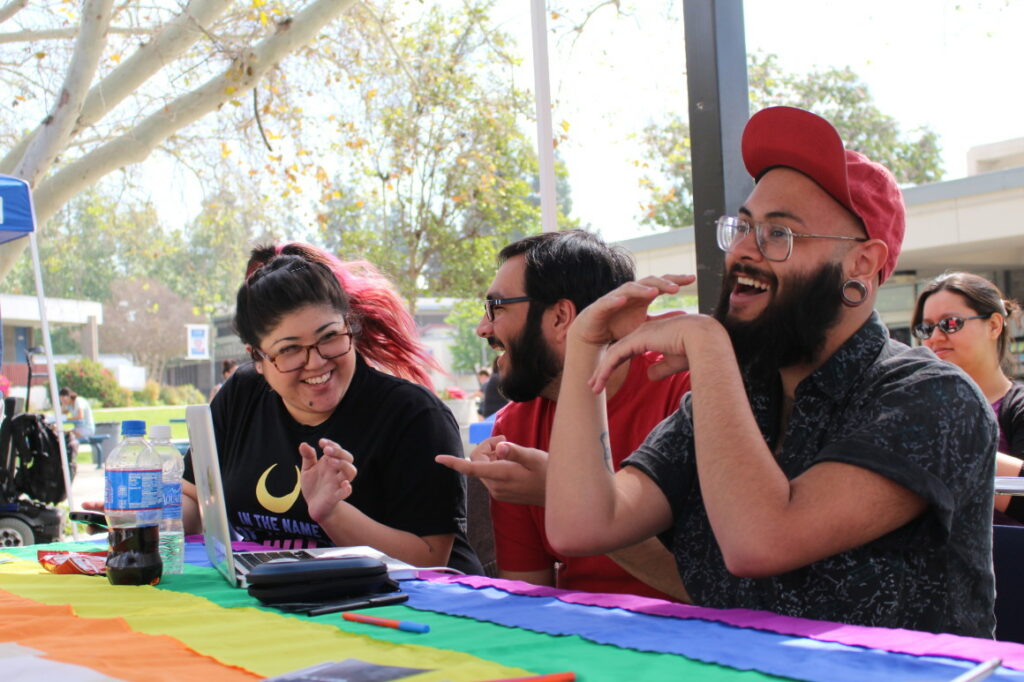As of this semester, Azusa Pacific – an evangelical and Christian college and the undergraduate school attended by John MacArthur – removed a prohibition against sodomy-based romantic pairing on the school’s campus. While the official teaching of the school is that a “sexual union is intended by God to take place only within the marriage covenant between a man and woman,” students will from now on be free to disregard that in their personal conduction. The changes are a part of a conversation between a sodomy-based student group called, Haven, and faculty.
Haven, the group designed to support sodomy-involved students on campus, began to petition Azusa Pacific University for full inclusion within the student body. Their desire was to officially recognized as a university-endorsed student group so they could meet on campus and advertise their meetings. Haven solicited the help of Erin Green, the co-director of a Sodomy-based group called Brave Commons. That organizaton set up talks with the university.
Green said, “We thought it was unfair to single out queer folks in same-sex romantic relationships while it is impossible to enforce or monitor [whether other students are remaining abstinent]. Queer students are just as able to have romanticized relationships that abide by APU’s rules. The code used falsely assumed that same-sex romances always involved sexual behavior. This stigmatization causes harm to our community, especially those serious about their Christian faith.”
[Editorial Aside: Can we drop the act that there are homosexual relationships anywhere on the planet ever that aren’t involved in sexual behavior? Puh-leeease]
Ultimately, the administrative board agreed and the Associate Dean of Students, Bill Fiala, said, “The changes that occurred to the handbooks around sexual behavior creates one standard for all undergraduate students, as opposed to differential standards for different groups,” Fiala said.
In other words, the board agreed that if heterosexual students could be engaged in non-sexual romantic relationships, it was discriminatory to homosexual students to not allow them to be in non-sexual romantic relationships. And yet, Fiala claimed that the university was sticking by its Christian principles because it was still forbidding all students – heterosexual and homosexual – from engaging in sexual relationships (while allowing non-sexual, romantic relationships).
“The change that happened with the code of conduct is still in alignment with our identity as a Christian institution,” Fiala argued. “The language changed, but the spirit didn’t. Our spirit is still a conservative, evangelical perspective on human sexuality.”
He continued:
Our hope is that the students who come experience respect, justice, grace and understanding. If you look at our mission, it’s consistent with Christianity. Our values for the pilot program are inclusivity, love, bravery. Our goals are care, connection and conversation. These all seem like Christian values to me.
The Office of Student Life also created a “safe space” for sodomy-involved students on campus. This decision was also made in conjunction with the Azusa Pacific University’s Student Government Association. The students thought it was important to have a place for sodomy-engaged students to feel safe within an environment that still claims to hold to Christian sexual values.
Haven, the pro-sodomy student group, is now meeting with institution permission and are gathering every week on Tuesday evenings. They have had 37 people and 47 people attend their first and second meetings, respectively.
Fiola said, “I would say that in any circumstance, you gotta approach things as a learner. Before making assumptions and drawing conclusions about people, get to know somebody different than you,” Fiala said. “I’m not a big fan of who’s right and who’s wrong in this conversation, I’m a big fan of caring for people. So my hope would be that we treat each other that way.”
Azusa Pacific University was founded in 1899 and began offering full degrees in 1939. Azusa Pacific began as a Quaker School, and later became affiliatd with Methodism, and today they hold to Weslyan-Arminian doctrinal theology. They are not associated with the charismatic Azusa Street Revival or its offshoots.
[Editor’s Note: HT ZUMedia]











